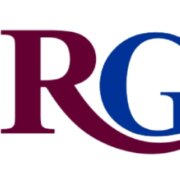Best White Collar Crime Lawyers in Gaborone
Share your needs with us, get contacted by law firms.
Free. Takes 2 min.
List of the best lawyers in Gaborone, Botswana
About White Collar Crime Law in Gaborone, Botswana
White Collar Crime in Gaborone, Botswana, involves non-violent, financially motivated offenses typically carried out by individuals, businesses, or government officials. These crimes often involve deceit and are characterized by actions such as bribery, embezzlement, fraud, money laundering, and corporate misconduct. With Botswana's growing economy and global business presence, there has been a corresponding increase in such crimes, necessitating stringent legal frameworks and enforcement measures to protect the public and investors alike.
Why You May Need a Lawyer
Individuals and businesses may seek legal assistance in cases involving White Collar Crime for several reasons:
- Investigation and Compliance: Companies may need guidance in ensuring their operations comply with Botswana's regulatory standards to avoid potential legal issues.
- Accusations or Charges: If accused of a White Collar Crime, having a lawyer can help in mounting a defense and navigating the legal process.
- Fraud Protection: Victims of fraud or embezzlement may require legal representation to seek restitution and damages.
- Business Transactions: Expert advice may be necessary during complex financial transactions to prevent irregularities.
Local Laws Overview
In Botswana, White Collar Crime is governed by a variety of statutes such as the Penal Code, the Corruption and Economic Crimes Act, and Anti-Money Laundering legislations. The Directorate on Corruption and Economic Crime (DCEC) is a key institution dedicated to investigating such offenses. Important legal concepts include:
- Fraud: Defined broadly as dishonest behavior for personal gain.
- Embezzlement: Misappropriation of funds or property entrusted to someone by an employer.
- Bribery and Corruption: Offering, giving, receiving, or soliciting something of value to influence actions of an official.
- Money Laundering: Concealing the origins of illegally obtained money, typically by means of transfers via foreign banks or legitimate businesses.
Frequently Asked Questions
What constitutes White Collar Crime in Botswana?
White Collar Crime generally includes actions like fraud, embezzlement, bribery, and money laundering. It's essentially non-violent and involves deceit or breach of trust.
What are the potential penalties for White Collar Crimes?
Penalties can vary depending on the severity and nature of the crime, ranging from fines and restitution orders to lengthy prison sentences.
How do I report a suspected White Collar Crime?
Reports can be made to the Directorate on Corruption and Economic Crime (DCEC), which handles investigations and enforcement of related laws.
Can a business be sued for White Collar Crimes conducted by an employee?
Yes, businesses can face legal consequences if an employee engages in illegal activities within the scope of their employment, especially if the business benefits from these activities.
Is it possible to recover loss from a White Collar Crime?
Recovery is possible through civil litigation or criminal restitution orders if the offender is found guilty. However, recovery can be complex and time-consuming.
Are there preventive measures against White Collar Crime?
Businesses can implement strict internal controls and compliance programs to mitigate risks. Regular audits and employee training can also be effective.
What should I do if I am accused of a White Collar Crime?
Seek immediate legal counsel. A lawyer can help assess the case, protect your rights, and devise a defense strategy.
Can foreign nationals be tried for White Collar Crimes in Botswana?
Yes, if the crime is committed within Botswana's jurisdiction, or affects its citizens or businesses, foreign nationals can be prosecuted under Botswana law.
What role does the DCEC play in combatting White Collar Crime?
The DCEC investigates, prevents, and educates the public about anti-corruption and economic crimes. They also enforce relevant laws and prosecute offenders.
Can a conviction for White Collar Crime be appealed?
Yes, legal counsel can help file an appeal against a conviction or sentence if valid grounds are present.
Additional Resources
For further assistance, the following resources may be helpful:
- Directorate on Corruption and Economic Crime (DCEC): The primary body tasked with combatting fraud and corruption.
- Financial Intelligence Agency (FIA): Provides oversight and coordination of anti-money laundering efforts.
- Law Society of Botswana: Offers contact details for certified legal practitioners specializing in White Collar Crime.
Next Steps
If you are facing issues related to White Collar Crime or require legal assistance:
- Contact a qualified lawyer experienced in White Collar Crime. Verify their accreditation with the Law Society of Botswana.
- Gather all necessary documentation and details related to your case for your lawyer's review.
- Consider discussing potential outcomes and strategies with your lawyer to ensure you're prepared for the legal proceedings.
Lawzana helps you find the best lawyers and law firms in Gaborone through a curated and pre-screened list of qualified legal professionals. Our platform offers rankings and detailed profiles of attorneys and law firms, allowing you to compare based on practice areas, including White Collar Crime, experience, and client feedback.
Each profile includes a description of the firm's areas of practice, client reviews, team members and partners, year of establishment, spoken languages, office locations, contact information, social media presence, and any published articles or resources. Most firms on our platform speak English and are experienced in both local and international legal matters.
Get a quote from top-rated law firms in Gaborone, Botswana — quickly, securely, and without unnecessary hassle.
Disclaimer:
The information provided on this page is for general informational purposes only and does not constitute legal advice. While we strive to ensure the accuracy and relevance of the content, legal information may change over time, and interpretations of the law can vary. You should always consult with a qualified legal professional for advice specific to your situation.
We disclaim all liability for actions taken or not taken based on the content of this page. If you believe any information is incorrect or outdated, please contact us, and we will review and update it where appropriate.













